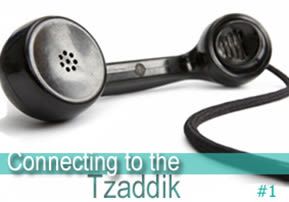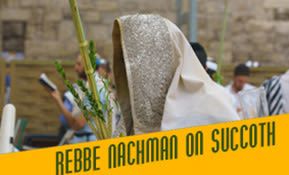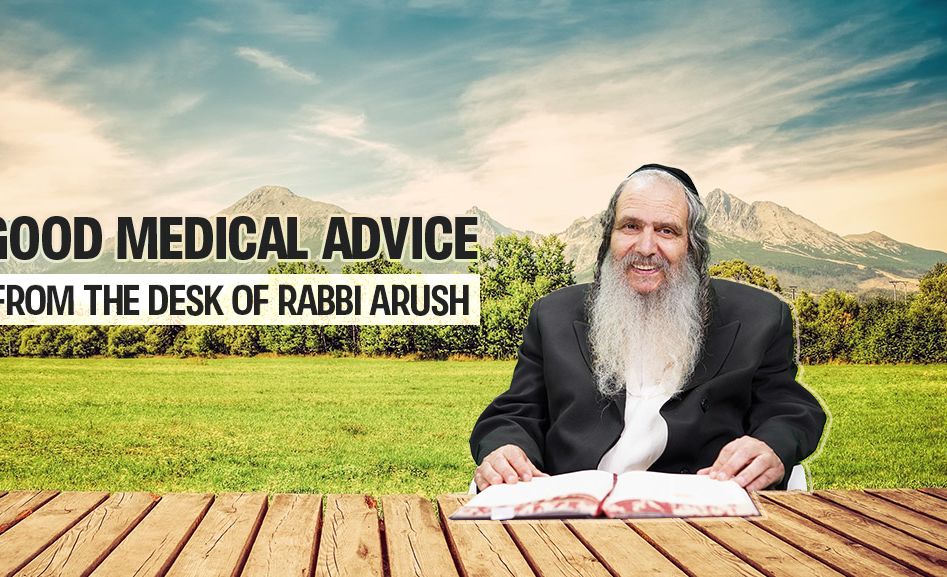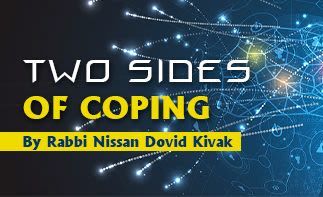
Connecting to Rabbenu, Part 1
Rebbe Natan also said that if he had to crawl on his hands and feet over a road of knife blades to get to Uman on Rosh Hashana then it’s worth the sacrifice.

Translated by Rabbi Lazer Brody
Connecting to the Tzaddik, Part 1
“How happy we are, how fortunate we are, that we have the privilege of coming close to Rabbenu.”
The word Rabbenu in Hebrew means “our Rebbe”, and it refers to Rebbe Nachman of Breslev. The song we Breslevers sing, “Ashrenu”, is no mere kindergarten song. We thank Hashem every single day for the privilege of getting close to Rabbenu, especially for the privilege of being able to spend Rosh Hashanah with Rabbenu in Uman. Before I continue, I’d like to bless each of you that you too will have the unique privilege of spending Rosh Hashanah in Uman with Rabbenu. We’ll soon find out why Rosh Hashanah in Uman is better than winning the first prize of the Irish lottery.
Rebbe Natan warned that once you finish your 120-year go-round on this earth, and the Heavenly Court wants to sentence you with a punishment of another reincarnation, what we call gilgul, in this physical world, don’t agree under any circumstance. But, if the Heavenly Court promises that you’ll be able to spend even one Rosh Hashanah in Uman with Rabbenu, then accept the gilgul – it’s worth it.
Rebbe Natan also said that if he had to crawl on his hands and feet over a road of knife blades to get to Uman on Rosh Hashanah that too is worth the sacrifice.
Rebbe Nachman writes in Likutei Moharan, first section, Torah 123, that “The principle foundation that everything depends on is to connect oneself to the tzaddik of the generation, to accept whatever he says, whether big or small, and not to deviate in the slightest from his directives, for our sages stressed this principle, as we see in the Sifri at the end of Parshat Shoftim: ‘Even if he tells you that right is left and left is right.’ One must cast all knowledge aside, and discard logic as if he has no intelligence at all, other than what he receives from the tzaddik and the spiritual leader of the generation. As long as a person retains any of his own reasoning, then he’s blemished, and not connected to the tzaddik.”
Rebbe Nachman isn’t playing with words – he means everything he says and he’s precise about everything he says. He labels one’s connection to the tzaddik of the generation as, the principle foundation that everything depends on.” Rav Shalom Arush says that the meaning of this passage is that one’s entire success in fulfilling his or her mission on this earth depends on the degree that he or she establishes a connection to the tzaddik. Since our connection to the tzaddik depends on the degree that we cast aside our own intellect, then the more we put aside our own logic and reasoning and bind ourselves to the tzaddik’s wisdom and teachings, the more successful we become.
This process of casting our intellect aside and adopting the tzaddik’s wisdom is called bitul, which literally means nullifying ourselves through connection with the tzaddik. People with ego problems have difficulty digesting the idea of bitul, thinking that they’re losing something. Imagine holding a small candle next to a large candle – the flame of the small candle melds with the flame of the large candle and becomes part of it. In other words, the flame of the small candle hasn’t disappeared but it’s now a part of the larger and brighter flame. By the same token, when we nullify our own intellects and connect to the tzaddik and to his wisdom, our own brains are now wicks for the tzaddik’s flame, in other words we shine and illuminate with the tzaddik’s wisdom, which is ever so much greater than our own. Therefore, we benefit enormously by connecting to the tzaddik.
To understand just how badly we need a connection with the true tzaddik, we must examine the mitzvah of teshuva. Teshuva is the greatest gift Hashem could bestow on mankind. Imagine that you owed the bank a million dollars, and that there’s no logical way on earth that you’ll ever be able to repay the loan. The future looks bleak, as if you’ll soon be called upon to cover the debt, and if you don’t, you’ll lose your home, your bed, and even the shirt off your back. Who knows, maybe soon you’ll be sleeping in some alley way eating potato peels – it’s that bad. Then you get an idea – you’ll throw yourself at the feet of the bank manager, confess your careless investments and squandering, express your remorse, ask for the bank manager’s forgiveness, and promise that you’ll never make the same mistakes again. The bank manager then takes your debt file, puts it in the shredder, and lets you off scot-free! What an unbelievable gift! That’s the power of teshuva.
Teshuva, to be effective, has 4 important steps: Confession, remorse, requesting forgiveness, and resolving not to repeat the transgressions. If one of these steps is faulty or missing, then the teshuva isn’t complete and our spiritual debts aren’t wiped clean. That’s dangerous because unpaid spiritual debts invoke harsh judgments, for the Gemara says that there are no tribulations without prior transgressions.
Can we say that our teshuva is good enough to get us off the hook? Oftentimes, we try to do teshuva and our mind is already thinking about another transgression. What kind of remorse is that? When we ask Hashem’s forgiveness for our shady business deals or for our slander of other people, do we really mean it? How fast are we right back on the telephone talking more lashon hara or fast-talking a customer with things that deviate from the truth just to make another dollar? Is that teshuva?
Rebbe Nachman of Breslev told his pupils – who were tremendous tzaddikim in their own right – that if they did teshuva on their own their entire lives, they don’t have the power to correct even one transgression. Then Rebbe Nachman said, “But don’t worry, I’ll do teshuva for you.”
Are we really Baalei Teshuva?
To be continued.








Tell us what you think!
Thank you for your comment!
It will be published after approval by the Editor.